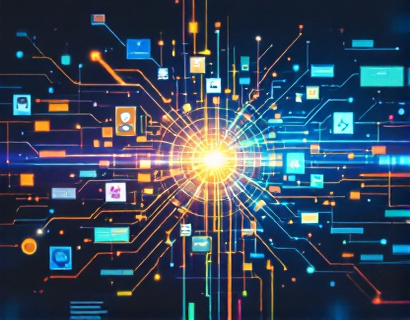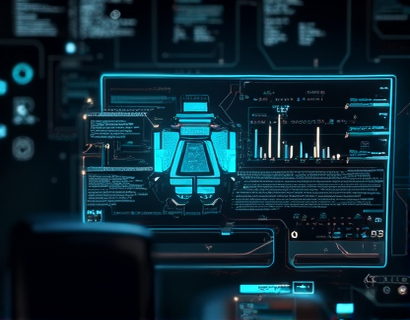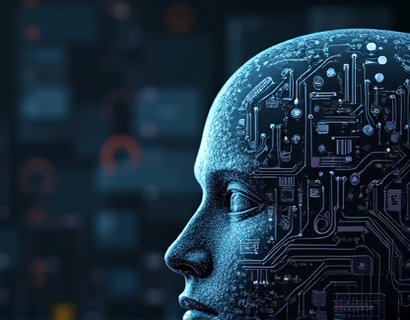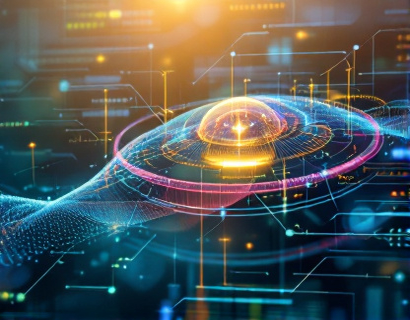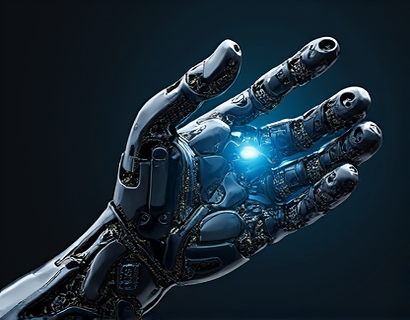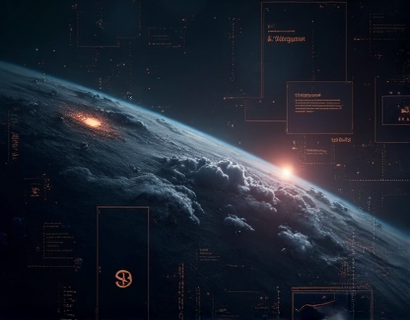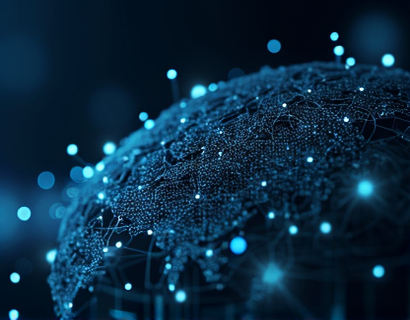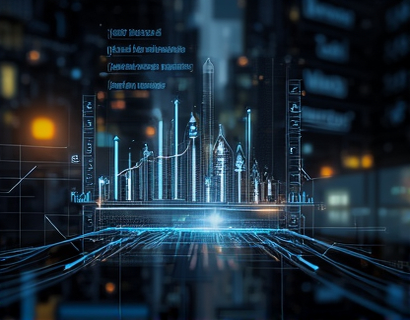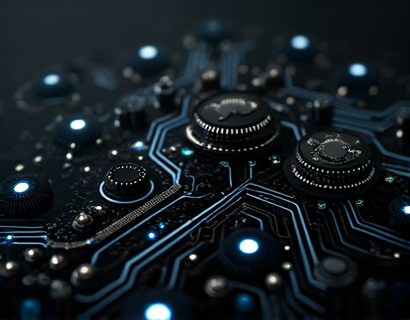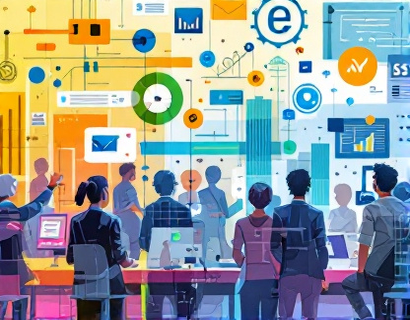Decentralized Productivity Transformed: Harnessing AI and Crypto for Next-Gen Digital Solutions
The intersection of cryptocurrency and artificial intelligence (AI) is giving rise to a new era of decentralized productivity tools and digital solutions. This transformation is not just about integrating two powerful technologies but about reimagining how we approach work, collaboration, and efficiency in the digital age. For tech enthusiasts and professionals, understanding this synergy is crucial for staying ahead in a rapidly evolving landscape.
Decentralized systems, powered by blockchain technology, offer a paradigm shift from traditional centralized models. They provide transparency, security, and resilience, making them ideal for building trust and efficiency in digital interactions. When combined with AI, these systems can automate complex tasks, analyze vast amounts of data, and provide insights that were previously unattainable. This article explores how this fusion is driving innovation and enhancing productivity across various sectors.
Understanding Decentralized Productivity
Decentralized productivity refers to the use of decentralized technologies to improve and streamline work processes. Unlike traditional centralized systems where control and data storage are concentrated in a single entity, decentralized systems distribute these functions across a network of nodes. This distribution ensures that no single point of failure exists, enhancing reliability and security.
The benefits of decentralized productivity are manifold. First, it promotes transparency as all transactions and processes are recorded on a public ledger, accessible to all participants. Second, it enhances security through cryptographic techniques that protect data from unauthorized access and tampering. Third, it fosters trust among users, as the decentralized nature of the system reduces the risk of manipulation or censorship.
One of the key applications of decentralized productivity is in the realm of collaboration. Traditional collaboration tools often rely on central servers, which can be vulnerable to attacks and outages. Decentralized collaboration platforms, on the other hand, use blockchain to ensure that files and data are securely stored and accessible to all authorized users, regardless of their location.
AI in Decentralized Systems
AI plays a pivotal role in enhancing the capabilities of decentralized systems. Machine learning algorithms can process and analyze large datasets to identify patterns, make predictions, and automate decision-making processes. In a decentralized context, AI can be deployed across the network, enabling real-time analysis and response without the need for a central authority.
For instance, AI-powered smart contracts can execute transactions based on predefined conditions, ensuring that all parties adhere to the agreed terms without the need for intermediaries. This not only speeds up processes but also reduces costs and the potential for human error. Additionally, AI can enhance the user experience by providing personalized recommendations and automating routine tasks, allowing users to focus on higher-value activities.
Enhancing Productivity with Decentralized AI Tools
The combination of decentralized technologies and AI is revolutionizing productivity tools. These tools are designed to simplify complex tasks, automate workflows, and provide actionable insights. Here are some ways in which decentralized AI tools are transforming productivity:
- Automated Data Analysis: AI algorithms can process and analyze large datasets in real-time, providing instant insights and recommendations. Decentralized platforms ensure that this data is secure and accessible to all relevant parties, enhancing collaborative decision-making.
- Smart Workflows: AI-driven smart contracts can automate business processes, from invoicing to project management. These smart contracts execute actions based on predefined conditions, ensuring that workflows are efficient and error-free.
- Decentralized Storage: Blockchain-based storage solutions offer a secure and scalable way to store and share data. AI can optimize storage usage and ensure data integrity, making it easier for teams to collaborate without worrying about data loss or security breaches.
- Personalized Assistance: AI-powered virtual assistants can provide personalized support to users, from scheduling meetings to managing emails. These assistants can operate across decentralized networks, ensuring that users have seamless access to their tools and data.
- Enhanced Security: AI can detect and mitigate security threats in real-time, protecting decentralized systems from potential attacks. This ensures that productivity tools remain reliable and trustworthy, even in the face of evolving cyber threats.
These tools not only streamline individual tasks but also foster a more collaborative and efficient work environment. By leveraging the strengths of both decentralized technologies and AI, organizations can achieve higher levels of productivity and innovation.
Case Studies and Real-World Applications
Several projects and platforms are already demonstrating the potential of decentralized AI in enhancing productivity. One notable example is a decentralized content creation and distribution platform that uses AI to curate and recommend content based on user preferences. This platform ensures that creators are fairly compensated through cryptocurrency, while users enjoy a tailored content experience without intermediaries.
Another example is a decentralized project management tool that utilizes AI to optimize task allocation and resource management. The platform uses blockchain to secure project data and smart contracts to automate payment and milestone tracking. This not only improves efficiency but also builds trust among team members and stakeholders.
These case studies highlight the practical benefits of integrating AI with decentralized systems. They show how these technologies can be leveraged to create robust, secure, and user-friendly tools that enhance productivity and foster collaboration.
Challenges and Considerations
While the potential of decentralized AI is vast, there are several challenges and considerations that need to be addressed. One of the primary challenges is scalability. Decentralized systems can sometimes struggle to handle large volumes of transactions and data, which can impact performance. However, ongoing developments in blockchain technology, such as layer 2 solutions and sharding, are addressing these issues.
Another consideration is the user experience. Decentralized platforms and AI tools need to be intuitive and accessible to a broad audience, including those who may not have extensive technical knowledge. User education and interface design play crucial roles in overcoming this barrier.
Regulatory compliance is also a significant factor. As decentralized technologies and AI continue to evolve, regulatory frameworks are still catching up. Ensuring compliance while maintaining the decentralized nature of these systems requires careful navigation and collaboration with regulatory bodies.
Future Outlook
The future of decentralized productivity, powered by AI and cryptocurrency, looks promising. As technology advances, we can expect more sophisticated and user-friendly tools that further enhance productivity and collaboration. Here are some trends to watch:
- Increased Adoption: More organizations and individuals will adopt decentralized AI tools as they become more mainstream and their benefits become clearer.
- Integration with Existing Systems: Solutions that seamlessly integrate with existing centralized systems will gain traction, making the transition to decentralized models smoother.
- Enhanced AI Capabilities: Advances in AI, particularly in natural language processing and computer vision, will lead to more intelligent and capable decentralized tools.
- Interoperability: Standards and protocols that enable different decentralized systems to work together will become more prevalent, fostering a more connected and efficient ecosystem.
In conclusion, the fusion of decentralized technologies and AI is transforming productivity in profound ways. By leveraging the strengths of both domains, we can create more secure, transparent, and efficient digital solutions. For tech enthusiasts and professionals, embracing these innovations is essential for staying competitive and driving progress in the digital age.






